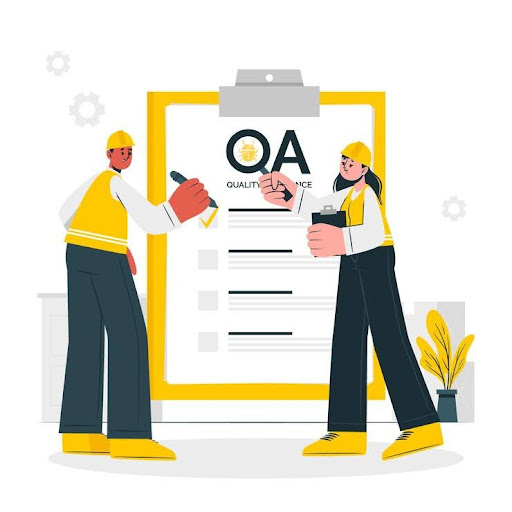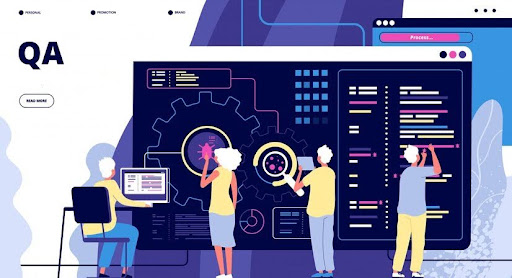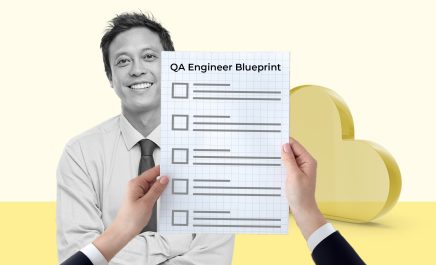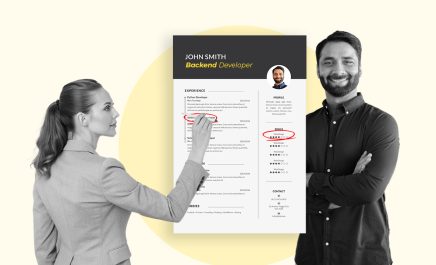The Essential Role of Hiring a QA Engineer in Delivering Reliable SaaS Products
- Sathvik Poojary
- December 6, 2024
- 5 Minute Read

The success of any SaaS product requires reliability. Customers expect flawless functionality, rapidness, and uninterrupted service.
If quality is poor, it means a loss of trust and financial revenue. Companies hiring QA engineers ensure that their software delivers consistent and reliable experiences. Their role in testing, identifying problems, and solving them must be addressed. They can easily align to the SaaS product life cycle, improving efficiency and quality.
By focusing on quality assurance, companies will retain customers and leap ahead of their competitors in the highly competitive SaaS market.
This blog highlights the importance of hiring QA engineers to ensure SaaS product reliability.
The Challenges of SaaS Development

SaaS development has unique complexities that demand robust quality assurance processes. Maintaining SaaS product reliability is challenging due to diverse user needs and dynamic environments. These challenges are:
Complexity of SaaS Environments
SaaS platforms rely on multi-tenant architectures to support multiple users simultaneously. Scaling these systems efficiently without affecting performance is often difficult.
However, integrating third-party APIs introduces additional risks, as dependencies can fail unexpectedly.
Quality assurance in SaaS ensures these challenges are managed effectively. With downtime averaging $9,000 per minute, companies are reminded just how crucial reliable systems are.
Frequent Updates and Continuous Delivery
SaaS companies often release updates to stay ahead in the market. However, these updates can sometimes cause bugs that affect existing features.
Regression testing is important to make sure the product works well after changes. QA engineers help find and fix these issues, reducing risks and keeping the product reliable.
User Expectations and Market Competition
Modern users require high-performance applications with nearly zero downtime and fluid experiences on every device.
The competitive SaaS market needs companies to innovate without the ability to sacrifice reliability. Quality assurance in SaaS allows businesses to deliver upon high expectations with such consistency that failure results in customer churn and reputational damage.
Why a QA Engineer is Essential for SaaS Success
In today’s competitive market, SaaS firms must deliver error-free experiences to retain customers. The role of QA in SaaS is vital as it ensures the reliability of software and user satisfaction.
Companies hiring QA engineers ensure quality from the very start, so problems are avoided before impacting the users.
Here’s why SaaS-based businesses should hire QA engineers:
Prevention of Costly Errors
Incidents like the 2019 SaaS platform outage highlight the need for robust QA to protect a company’s reputation and bottom line. In fact, early bug detection reduces development costs by 30 times compared to post-release fixes.
Enhancing User Experience
QA engineers make SaaS applications easy to understand, accessible, and bug-free, giving companies a competitive edge by meeting high user expectations.
Improving Development Efficiency
With quality assurance in SaaS, businesses can accelerate feature releases while maintaining reliability and saving time and resources. QA teams bridge communication gaps between developers and testers, streamlining workflows.
Automated testing tools, like Selenium, allow for faster iterations without compromising quality.
The Skills and Qualities of a Great QA Engineer
The success of SaaS products often depends on hiring a QA engineer with the right skills. A great QA engineer ensures smooth performance, bug-free experiences, and efficient workflows.
For companies hiring QA engineers, evaluating specific qualities is essential to find the best fit, including:
Technical Expertise

A QA engineer specializing in SaaS should have expertise in testing tools, automation frameworks, and programming languages. Some commonly used tools include Selenium, Jenkins, and Postman. Familiarity with cloud platforms like AWS or Azure is also crucial for managing SaaS-related challenges.
Besides, companies hiring QA engineers should consider it useful to have candidates who understand complex architectures and scalability requirements.
Analytical Thinking and Problem-Solving
QA engineers need strong analytical skills to diagnose and identify the root causes of issues effectively. Scenario-based testing enables them to simulate and evaluate various user interactions, ensuring all possible use cases are thoroughly tested.
Hence, finding a QA engineer with problem-solving skills will ensure that issues are resolved promptly and correctly.
Communication and Collaboration
The best QA engineer for SaaS works alongside developers, product managers, and designers, aligning goals to deliver exceptional quality.
Effective communication is essential for aligning quality goals with project requirements. Companies hiring QA engineers benefit from professionals who foster collaboration and maintain transparency throughout development.
Integrating QA into the SaaS Development Workflow
QA integration in the SaaS development process is important to ensure reliable, scalable software. Good QA helps minimize risk, ensures product quality, and supports rapid delivery in dynamic markets.
Defining QA’s Role in Agile and DevOps
In Agile and DevOps workflows, QA ensures quality through continuous testing and early involvement. Integrating QA into CI/CD pipelines helps identify defects quickly and maintain seamless releases. Additionally, QA involvement in sprint planning ensures that test scenarios match user stories during development to avoid defects late in the cycle.
Choosing Between Manual and Automated Testing
Manual testing is highly effective for evaluating aspects of a product that require human judgment and creativity. It is especially useful for assessing user interfaces (UI), where testers can ensure that the design, layout, and functionality meet user expectations.
In contrast, automated testing is essential for repetitive tasks, regression tests, and load assessments. Tools like Selenium, Cypress, and JUnit are commonly used for SaaS automation.
Building a Culture of Quality
Building a quality-focused culture requires involving QA engineers from the project’s inception. This proactive approach identifies potential issues early, saving costs.
The ROI of Hiring a QA Engineer

Quality assurance engineers are expensive investments but with such investment, software quality and efficiency increase. Companies that employ QA engineers reduce costs, retain more customers, and deliver products faster.
Cost Savings in the Long Run
Proactive testing reduces costly post-release issues and ongoing maintenance.
Increased Customer Retention
Reliable software builds trust, ensuring users stay loyal and recommend your product. Companies that hire QA engineers consistently deliver error-free experiences, which boosts user satisfaction and retention rates.
Faster Time to Market
QA engineers play a crucial role in detecting issues early, ensuring smooth release schedules, and avoiding delays. By leveraging automated testing, they streamline workflows, enabling faster and more efficient product delivery.
Conclusion
Quality assurance becomes the backbone of SaaS success, where reliability, scalability, and user satisfaction are the keys to making it work. It stands between costly errors, enhances user experience, and develops efficiency during development.
Countless businesses have discovered that hiring an efficient QA engineer leads to ideal product performance, faster releases, and higher customer retention.
Therefore, if you are ready to drive your SaaS product to the next level, hire QA engineers to ensure that your solution is perfect, reliable, and prepared to succeed.
Frequently Asked Questions
What does a QA engineer do in SaaS development?
Ans: A QA engineer tests software and ensures its quality through performance and security testing functionalities. It ensures that the product developed meets all the user’s requirements and effectively works on all devices and platforms.
When should a SaaS company hire a QA engineer?
Ans: For effective quality assurance, a SaaS company should hire a QA engineer during the initial stages of product development. This ensures that testing is consistently embedded throughout the development lifecycle.
What’s the difference between manual and automated testing?
Ans: Testers performing manual testing work directly within the application, often detecting more subtle bugs. However, automated testing relies on scripts, providing a quicker and more uniform testing process.
How much does it cost to hire a QA engineer for a SaaS team?
Ans: Factors like location, experience, and project scope influence QA engineer compensation. In the U.S., the average salary ranges from $50K to $110K per year. Another option is to outsource QA, with prices beginning at $20-$50 per hour by region.

Thank you for submitting the details!
We will keep your information safe. Feel free to contact us with any questions at hello@uplers.com
Please check your email for next steps shared by Robert.















